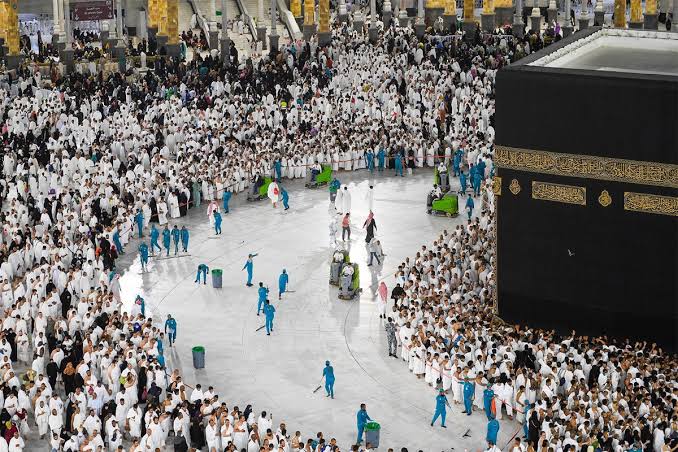Over a million worshippers from around the world and from within Saudi Arabia have gathered at the Grand Mosque in Mecca and the Prophet’s Mosque in Medina to observe the final nights of Ramadan, a period considered highly sacred in the Islamic calendar.
These devout worshippers are engaging in various religious activities such as Umrah, taraweeh, and qiyamullail prayers. These prayers and rituals are undertaken with the hope of seeking blessings and forgiveness during the concluding phase of the holy month, which began on the 20th day of Ramadan.
The final nights of Ramadan hold particular significance as they are believed to be among the most spiritually rewarding times for Muslims.
To ensure the comfort, safety, and convenience of the worshippers, the Saudi government, through the General Authority for the Care of the Affairs of the Grand Mosque and the Prophet’s Mosque, has implemented a comprehensive and meticulous operational plan.
This plan, which commenced on Saturday, includes the provision of an extensive range of services and the strategic deployment of both human and technological resources to facilitate the smooth and orderly conduct of prayers and rituals.
A dedicated team of more than 4,000 workers, overseen by 200 Saudi officials, is working tirelessly to maintain the cleanliness and hygiene of the mosques.
This involves managing and cleaning over 3,516 toilets, ensuring the availability, cleanliness, and distribution of 9,155 containers of Zamzam water, and preparing more than 35,000 new carpets for the prayer halls and courtyards.
To facilitate the movement and convenience of the worshippers, 3,000 hand carts, 2,000 electric vehicles, and 6,000 vehicle pushers have been organized.
As part of the spiritual activities during these final nights of Ramadan, thousands of worshippers have begun i’tikaf after successfully registering online. I’tikaf is a spiritual retreat that involves engaging in intense worship, reflection, and seclusion within the mosque.
The provision of this opportunity for worshippers adds to the spiritual significance and atmosphere of devotion during these final nights.
The Presidency of Religious Affairs has also taken proactive steps to enhance the spiritual experience and engagement of the worshippers. They have increased Qur’an memorization sessions and programs, with 1,230 students participating under the guidance of 102 teachers.
Another significant initiative focuses on correcting Qur’an recitations, benefiting 1,300 visitors daily. These efforts aim to enrich the spiritual journey of the worshippers, provide them with meaningful and fulfilling experiences, and help them connect deeply with their faith during these final nights of Ramadan.


